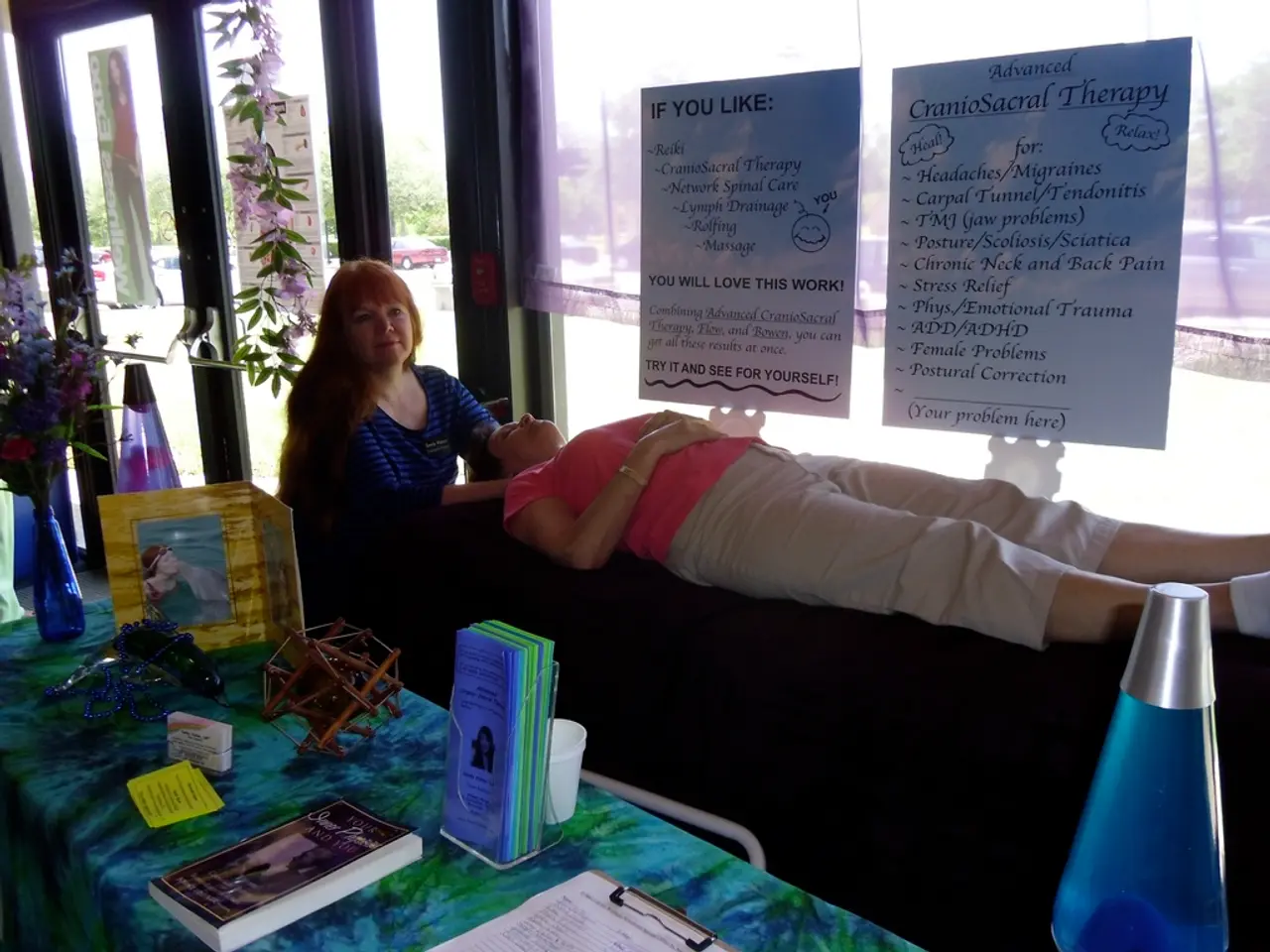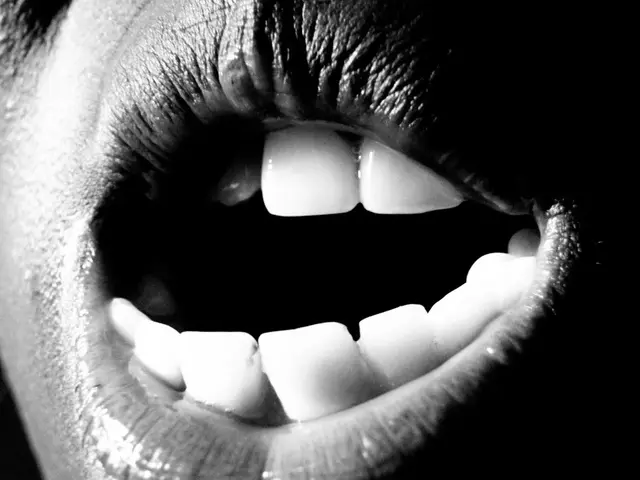Treatment of Depression through Acupuncture: Outcomes, Research Evidence, and Further Insights
A growing body of evidence suggests that acupuncture, a traditional Chinese medicine technique, may offer a promising alternative or complementary approach to managing depression.
Recent meta-analyses have indicated that acupuncture may slightly reduce the severity of depression, with some improvement compared to certain antidepressants. However, the comparative efficacy to psychotherapy remains less defined [1][2].
One of the key findings is a 2025 randomized controlled trial involving 85 women with postpartum depression. The study found that acupuncture combined with psychological intervention was as effective as fluoxetine medication in reducing depressive symptoms, with about 90% of participants achieving a 50% improvement on the Hamilton Depression scale (HAMD) in both groups. Notably, acupuncture had no obvious adverse events compared to the medication group, which experienced nausea, dizziness, and poor appetite [1].
For menopausal depressive disorder, a systematic review and meta-analysis found that acupuncture significantly improved depressive symptoms and clinical effectiveness compared to control interventions. The benefits were likely mediated through neuroendocrine and neurotransmitter regulation rather than hormonal changes [2].
However, evidence from studies focusing on menopausal symptoms, including vasomotor symptoms often comorbid with depression, shows that while acupuncture improves overall quality of life and symptom severity, effects often do not significantly exceed sham acupuncture in some measures, reflecting placebo-like components in acupuncture treatment [3].
When it comes to depression related to other conditions, such as post-stroke depression, reviews and trials indicate a potential benefit and good safety profile. However, they also emphasize the need for further high-quality research to conclusively compare acupuncture to standard treatments like medication and cognitive-behavioral therapy [5].
Newer research explores acupuncture at specific points (e.g., "Ghost Points") for depression with insomnia, showing promise in symptom improvement. However, these studies are relatively new and require replication and comparison with standard therapies [4].
While acupuncture may not be an alternative to standard treatments for depression, as depression is a serious and potentially life-threatening condition, it can substantially reduce depression symptoms in combination with medication. Some evidence suggests that acupuncture may work by regulating neurotransmitters [1][4].
It is important to note that while the quality of the data is improving, it is still insufficient to conclusively prove that acupuncture works. The study's authors propose that acupuncture might help regulate glutamate receptors, potentially benefiting depression and other mental health conditions like schizophrenia and anxiety [1].
Individuals with depression may want to consider alternative therapies like acupuncture as part of a comprehensive treatment plan. However, they should always seek treatment from a qualified healthcare provider.
While most data suggest acupuncture is safe, side effects can include pain, bruising, bleeding, dizziness, headaches, nausea, and allergic reactions to chemicals or metals in the needles. Acupuncture may cause fewer negative side effects than medication [1].
Serious consequences can occur when acupuncture practitioners use dirty needles, apply incorrect techniques, or are not knowledgeable in the practice. Therefore, it is crucial to ensure that practitioners are appropriately trained and use sterile equipment.
In conclusion, while the evidence for acupuncture as a standalone treatment for depression is not conclusive, it appears to be an effective and safe option for certain types of depression, such as postpartum, menopausal, and post-stroke depression. Its potential benefits are most evident when used as an adjunctive therapy, complementing standard treatments like medication and psychotherapy.
- Acupuncture, particularly when combined with psychological intervention, showed similar effectiveness as fluoxetine medication in reducing depression symptoms in postpartum women, with fewer adverse events.
- For menopausal depressive disorder, acupuncture resulted in significant improvement in depressive symptoms and clinical effectiveness compared to control interventions, potentially through neuroendocrine and neurotransmitter regulation.
- While acupuncture may not be a standalone alternative to standard treatments for depression, it can substantially reduce depression symptoms and is a safe option for certain types of depression, like postpartum, menopausal, and post-stroke depression, when used as an adjunctive therapy.








